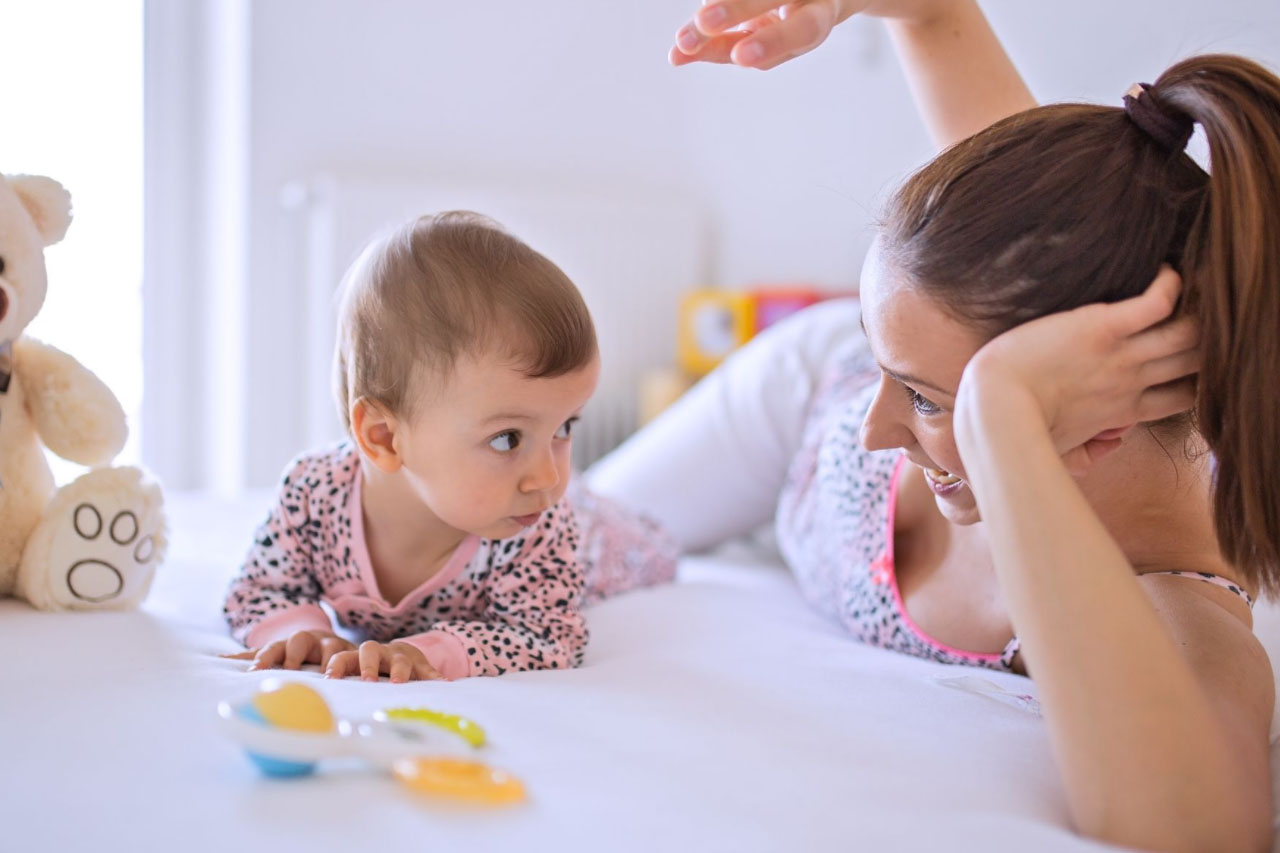Many babies and toddlers from 4 months until 2 years stay at home with a nanny while their parents are off to work. Many parents want to know what their nannies should do to really boost their children’s development. This article is not only aimed at nannies, but also parents, grannies or others that spend time with these precious little kids.
1. LOVE children. Your nanny should be someone that will truly love your child, because if she does, the rest will come more naturally. Often if we also take good care of our nannies, they naturally become a part of the family, feel loved and can then only love the child more. We
would all go off to work with a happy heart if we know that our children are in good care – someone that will laugh, hug and play with the children because they love them. Other skills can be taught, but love comes naturally.
2. Avoid screen time as a whole. There is strong research telling us how bad it is to expose children to screens (television, tablets, computers, cell phones etc.). It is highly recommended that children have no screen time at all for the first two years of their lives. From two years, it is still recommended that screen time is kept to a minimum, although a little exposure every now and then won’t hurt. Screen time is a whole topic on its own, but your nanny and children alike will be able to come up with better and more creative ideas on what to do with their time. This by itself will already boost your child’s development.
3. Limit the fancy extras. There are so many things available on the market that you can buy for your kids: walking rings and jolly jumpers for babies to fancy toys for older kids. Usually first-time parents are overwhelmed with what is available and what they should get for their kids. The honest truth is, not much. Less is more. Walking rings and jolly jumpers limits your child’s development. The best you can do is to rather not buy. A baby is much better off lying on a soft blanket on his/her tummy, or sitting with pillows supporting him until he can sit by himself. This will allow your child to use and strengthen his/ her own muscles instead of relying on a fancy piece of equipment. Of course a child should have toys, but be clever about it and try to get them to become more inventive.
4. Lots of interaction: Peek-a-boo, singing, reading books, looking in a mirror, pulling faces, pointing to different body parts whilst naming them, cuddling and rough and tumble play are all brilliant stimulating activities for the under 1 year old. Reading books, having discussions and by doing things together (baking, drawing, dancing, cleaning, playing) facilitates social skills and your child’s development.
5. Allow for exploration: Have areas around the house where they are allowed to go and explore. E.g. a kitchen cupboard with several unbreakable kitchen utensils (plastic containers, cups, spoons, muffin tins etc.) that your child is allowed to access, unpack and explore with these. Your child will learn from early on which cupboards they are allowed to unpack, and which they can’t. Have different boxes/ cupboards or areas in the house where you can place a few different household objects such as a string, blocks, containers, soft toys, sound toys, old television remotes etc. for them to play with. Make sure that you don’t make it too cluttered. Pack away objects and change them frequently. Babies love unpacking and the older kid can become quite inventive by turning some of these containers into something else. I remember my son used to build machines with plastic containers, cups, strings and any other object that he could find in the house.
6. Have a few go-to’s: A sandpit or area where they can play in the sand outside is always a win. Having a ball, bicycle, a few books, fantasy toys (such as dinosaurs, dolls or figurines) that your child is interested in provides your child with a variety of options. Water play, play dough and painting are all great go-to’s for most kids of all ages.
7. Some play time ideas:
- Build obstacle courses and houses with linen, chairs, cushions and pillows for them to climb into.
- Go for a walk (if possible) and collect specific objects such as little flowers, leaves, rocks etc.
- Make play dough and build various persons and objects. Let the child explore with different utensils too.
- Play outside with balls, have a tea party with the children’s teddy bears and dolls.
- Posting activities for the younger child: make different sized holes in a shoebox or container for your child to post different objects into (such as rocks, papers, balls and toys). This teaches them size concepts.
- Paint – use non-toxic finger paint or water paint and let your child explore. The child can paint with his/ her hands, sponge or a paint brush.
- Play with large blocks – build houses, roads, towers or anything they like. Don’t make it too structured, but a child learns by watching others, so play with him/ her.
- A little child loves cleaning. They would happily grab their own cloth, broom or duster and help with chores around the house. Include them in the household chores.
Exposure is key to a child’s development. The more a child is exposed to a variety of activities, the more they learn. Talk to them. Sing to them and dance with them. This will help develop language too and teach them the concept, and what it is called. And remember, do everything in a fun and loving way.

